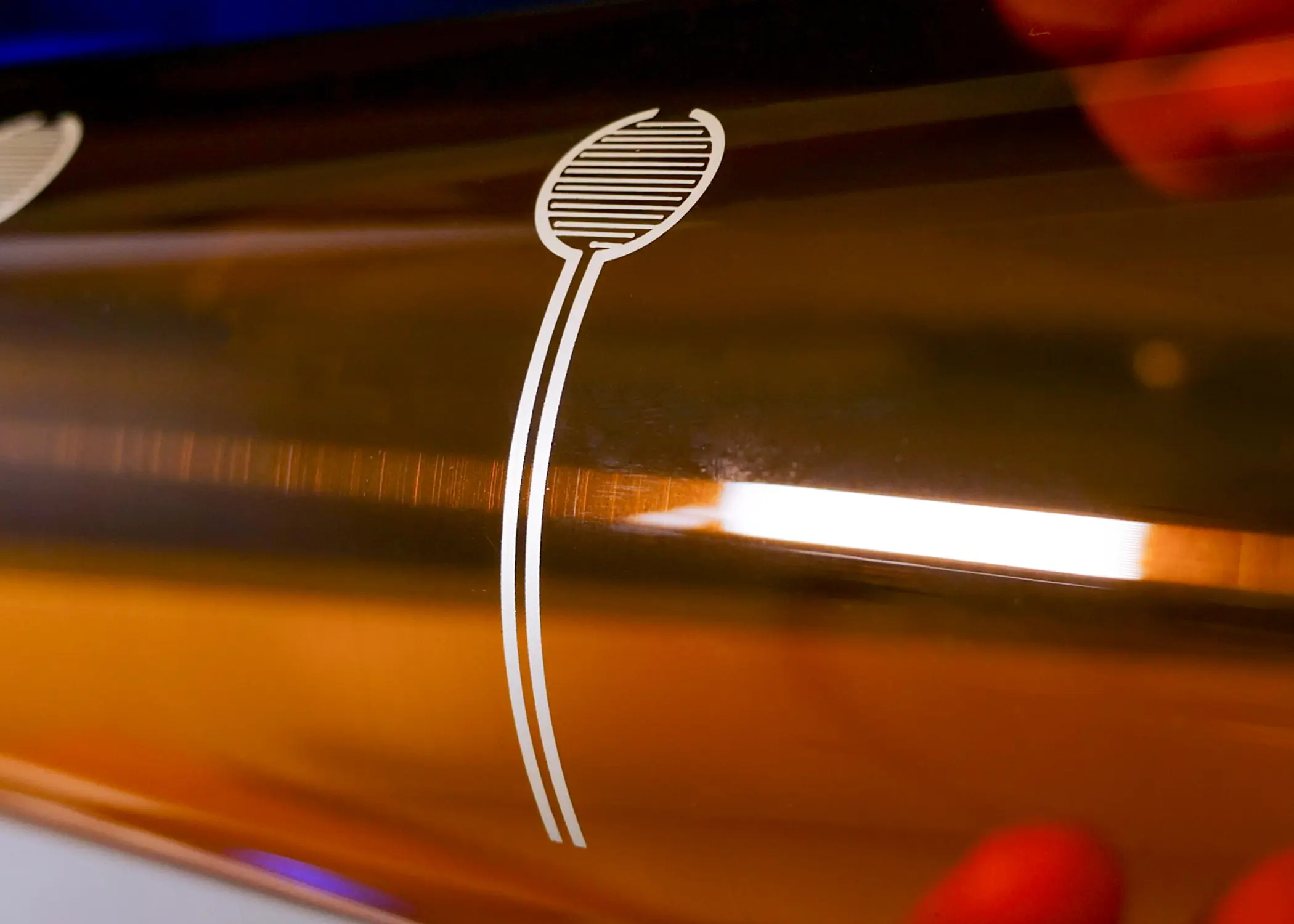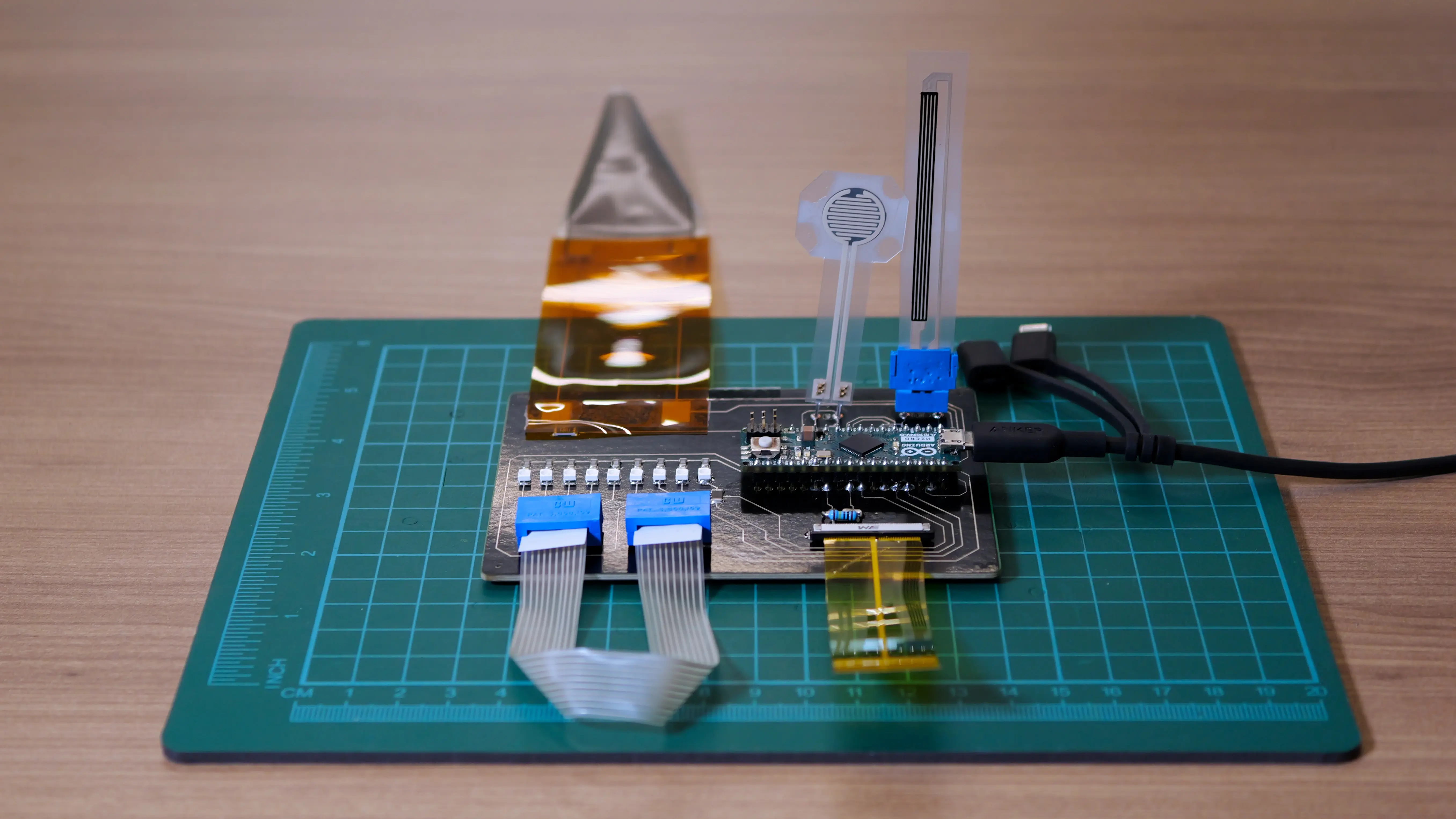Force Sensitive Resistors
Prototype force sensitive resistors for printed electronics
A force sensitive resistor (FSR), also known as a force sensing resistor or piezoresistive force sensor, uses layered materials that change resistance when force is applied directly to its surface. Unlike strain gauges, which measure substrate strain via resistance changes, FSRs detect force on the sensor itself, not substrate deformation.
Thanks to their low costs and durability, FSRs are commonly used in medical devices to measure localized pressure (e.g., in prosthetics), in wearable systems to assess gait stability or footfall asymmetry, and in retail applications like smart shelves or point-of-sale systems to detect object placement or pressure.


- Consumer electronics
- Healthcare
- Retail
- Smart textiles
- Automotive
- Sensors
- Aerospace
- Polyethylene terephthalate (PET)
- Polyimide
- Polyvinylidene fluoride (PVDF)
- FR4
Our white papers

Connecting Flexible and Stretchable Substrates to Printed Circuit Boards
Learn more about methods for connecting flexible/stretchable substrates to rigid PCBs, including ZIF, crimp, snap, IDC connectors, and Z-axis tape for seamless integration in wearables, sensors, and flexible electronics.